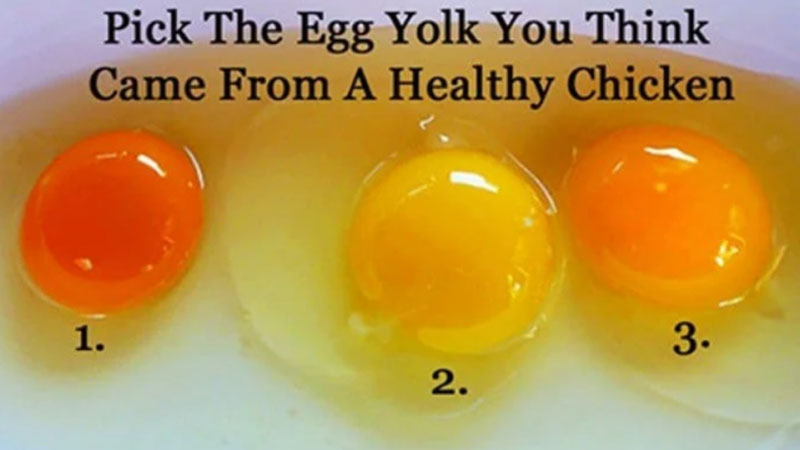Eggs are an essential source of protein, vitamins, and minerals to get impressive health credentials. As a superfood, they are high in vitamin A, folate, phosphorus, vitamin B5, B12, B2, vitamin E, vitamin K, selenium, vitamin D, vitamin B6, calcium, and zinc.
Since there are lots of different types of eggs available, chicken eggs are most commonly known. Yet, some of the other egg alternatives include quail, goose, and duck eggs.
However, do you think if the hen is raised in poor conditions in a factory, the difference between a healthy and an unhealthy egg can be known?
The foremost thing to know about the egg’s quality is the yolk’s color.
Following are some important tips for your guidance.
- Egg With Dark Orange Yolk
An extremely healthy yolk has a dark orange color that is probably from a chicken farm. These hens live in favorable conditions, free roam the land, get access to green plants, and consume a well-balanced diet, rich in insects, ticks, spiders, crickets, and grasshoppers.
As per Penn State study, eggs from such hens offer greater nutritional benefits. They are full of Vitamins A, E, and beneficial fatty acids than caged hens raised in a factory setting.
These eggs usually originate from commercial egg factories, and these hens do not have free access to the outdoors at all. They are fed only grains, and the eggs have been hatched from incubators. Their cages have artificial lighting, and they roam around a dimly lit or darkened barn with no windows.
- Egg With Light Orange Yolk
Light orange yolk found at local grocery stores. These chickens live on large chicken farms, intolerable conditions, but their diet mainly consists of grains. Yet, there is a drawback, the more chickens at the farm, the lower their quality.
Surprisingly, certified “organic” eggs might have a light yellow-orange yolk too. Their producers try to meet the outdoor access requirement for an organic label by giving their hens access to a small outdoor pen with a cement floor or dirt ground.
Therefore, the healthiest egg is shown in the first image. Local farms’ eggs are fresh and extremely high in nutrients. Moreover, they even taste much better!
Therefore, enjoy them as often as possible!
When you are at a supermarket, get the eggs labeled “pasture-raised”, and don’t rely on terms like “free-range, “organic”, or “vegetarian-fed”.
Organic eggs belong to hens that have not been treated with antibiotics and have eaten organically-grown feed, free of GMOs and synthetic pesticides. Yet, they also have lived in inappropriate conditions.
While the labels “cage-free” and “free-range” should indicate that the hen has had more space in the cage, this doesn’t have to be entirely true, as farmers can still confine these birds with very little or no access to the outdoors.
Yet, you can be sure that eggs that have a pasture-raised label, alongside the USDA Organic and Certified Humane labels or the Animal Welfare Approved label, come from a hen that has freely roamed the farm, ate bugs, spread its wings, and enjoyed the day in the dirt.


